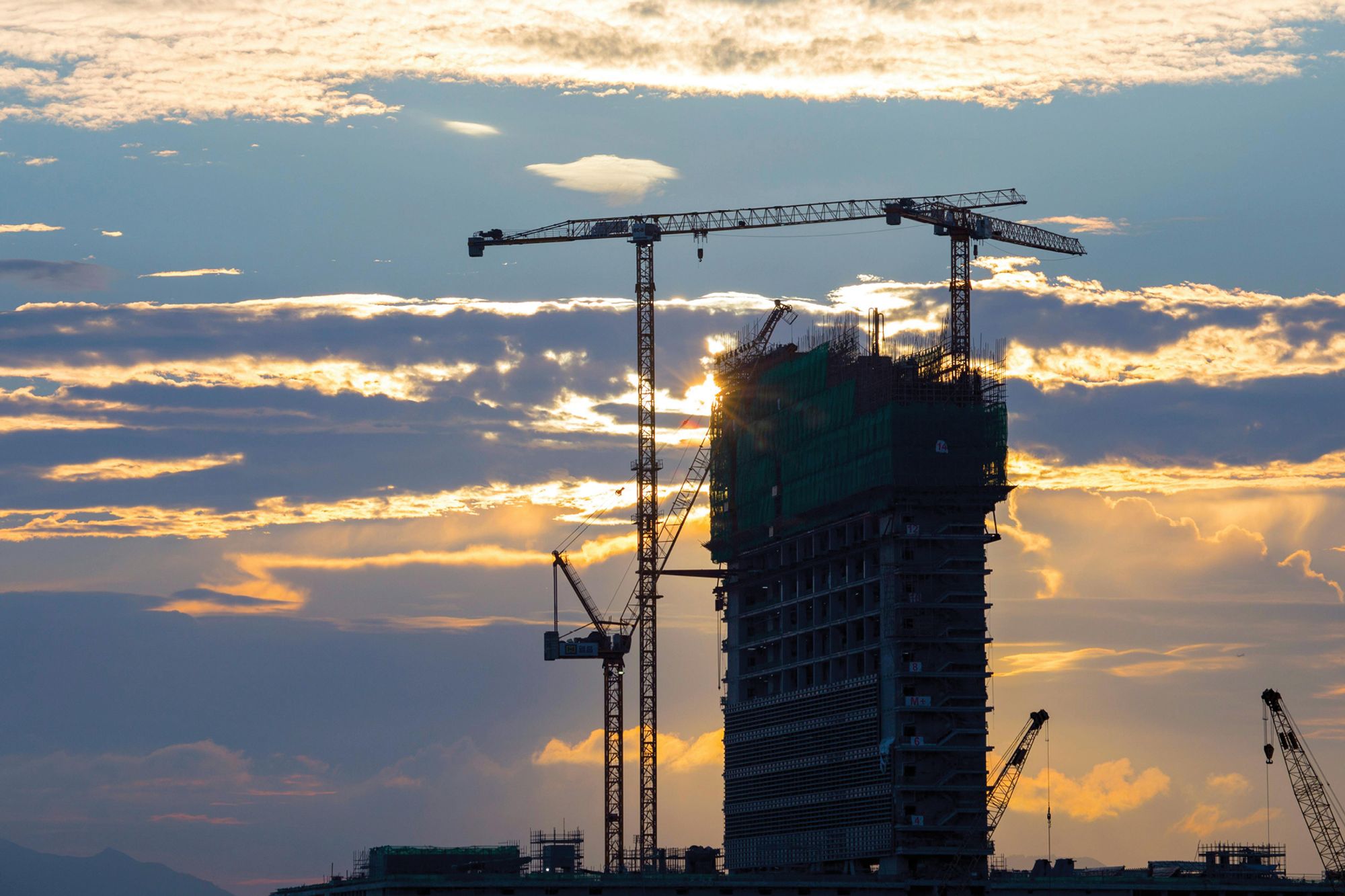
What do property developers do?
How property developers build wealth
Property developers buy land or property with the goal of increasing its value. They do this by building, subdividing, renovating, landscaping, and more. They then sell or lease the property to generate a profit.
This article will share what property developers do, how they work with real estate agents, and their role in revitalising neglected or underutilised land.
What does the job of a property developer entail?
A key skill for property developers is the ability to see potential in places others don’t.
Developers need to identify opportunities, obtain capital to invest in the land, and manage every stage of the project, from construction to the final sale.
Being a property developer comes with risk, but for those with a keen eye for untapped potential, it can be an exciting and profitable way to grow long-term wealth.
How do property developers work with real estate agents?
The relationship between property developers and real estate agents is a necessary and mutually beneficial one.
Developers need help buying and selling land and real estate agents need buyers, especially for less desirable homes or pieces of land that need an upgrade.
Agents can also help property developers with the following.
Understanding the market: Real estate agents who can spot a diamond in the rough and estimate potential ROI are invaluable to developers.
Selling off-the-plan: Developers often don’t want their investment sitting and collecting dust after it’s finished. Real estate agents can help them sell off the plan so they don’t waste time getting their return.
Managing negotiations: Most developers don’t have the time to oversee negotiations with buyers. For multi-dwelling properties like apartments, this could potentially mean fielding questions from hundreds of interested potential buyers. Real estate agents have the skills and resources to manage this.
Marketing strategy: Real estate firms often have in-house marketers or established connections with marketing experts they can utilise to advertise your property. More interest from a well-executed marketing campaign can generate more buyers, driving up the price of your property.
Property developers vs builders
While some builders decide to become property developers after seeing the potential return of flipping a property, builders and property developers aren’t the same thing.
Builders focus their efforts and skills on the physical construction that brings the developer’s vision to life.
Property developers are big-picture thinkers interested in investing their capital in places where they can see the most return. They are also skilled at managing construction projects and understanding demand, and they feel confident taking a risk with the promise of strong returns.
Developers and builders work together, often alongside other specialists like architects, planners, and real estate agents.
How can property developers add value?
The best property developers (and the ones that get the best returns) aren’t building the same stock standard buildings as everyone else. Instead, they are transforming something less desirable into a home or office space that will delight its future inhabitants.
Here are some ways property developers add value to communities.
Turning empty land into homes: In 2024, Australia built 170,719 new homes, falling short of the annual target of 240,000. A vacant lot can remind people of underinvestment in their area, while a new development brings new homes, jobs, and opportunities for the community.
Turning a lemon into lemonade: Have you ever walked past a neglected home and thought: “That’s a shame, it’s in such a great location”? This is gold to a developer. They will take the risk of turning it all around, selling it to a happy buyer, and taking their cut.
Putting cash into the local economy: Big development projects keep builders, architects, real estate agents, marketers, and even the person selling pies at the local bakery in business.
Sustainable building: Modern building practices have come a long way in the last few years. Developers focus on building places that will be desirable on the market, and buyers generally prefer homes with energy-efficient designs and eco-friendly materials.
What do property developers look for in a residential site?
Developers will be looking at all the elements that make a residential property desirable to future buyers. This includes zoning, the suburb’s potential, schools, public transport, shops, and how much value they can add.
Once a developer decides your land fits their vision, they will usually put in an offer with conditions attached. This means that, before buying, they will want to order site surveys, organise soil tests, and engage town planners or architects to confirm what can be legally built. The developer’s goal at this stage is to lock in the project’s feasibility before settlement. If everything falls into place, they will proceed with the purchase and begin moving toward approvals and construction.
The step-by-step development process
If you're curious about becoming a property developer, it might help to have an understanding of how the process typically works.
Here’s a quick breakdown of the steps involved.
Step 1: Find a hidden gem
The property development journey all starts with an opportunity. Connecting with a local real estate agent can help you find these opportunities faster than scrolling through listings online.
Step 2: Run the numbers
If the property you're looking at isn’t likely to generate a return, keep looking. You’ll need to determine this by calculating the physical development costs, risks, and potential profit. Again, an experienced real estate agent can help you with this and connect you with the right industry experts.
Step 3: Buy the property
You’ll need to buy the land or property at a cost that matches your estimates to ensure a solid return.
Step 4: Design and plan
Now that the land or property is yours, you can bring in talented architects, builders and designers to help create your vision. They can work with you to get the best result within your budget.
Step 5: Council approvals
This is the first step in starting construction. Before your builders can break ground, you’ll need to apply for council permits and zoning regulations.
Step 6: Construction
Once you’ve agreed on a plan and you have all your approvals, it’s time for builders to get to work on your development. You’ll want to keep a close eye on this process and have a good honest line of communication with the site manager.
Step 7: Selling off the plans (optional)
At this point, you should also have plans, so you can contact your real estate agent and start selling the property or properties according to the plan.
Step 8: Marketing and the sale
Your real estate agent will do the heavy lifting to market and sell your property to get you the best possible return. You will want to work with a team like DiJones that is experienced in helping developers get the best returns for their work.
If you’re new to property development, starting small (renovating your existing home or subdividing land, for example) can be a smart way to learn the ropes before tackling larger projects.
Summing up
Becoming a property developer requires a mixture of vision, strategy and hard work. Whether you are developing land from scratch or rebuilding homes, there is the potential to build long-term wealth.
If you’re thinking about becoming a property developer, it’s important to do your research to understand the market. It’s also important to team up with experts. Here at DiJones, we have a wealth of experience working with developers and can support you throughout the project. Get in touch today!
FAQs
How do property developers make money?
Property developers make money by buying property, building, subdividing or renovating it to increase its value, and then selling it for a profit. As property developers get better at their craft, they often begin to secure bigger loans from banks to scale their operations and profit.
What are the risks of being a property developer?
Property developers take on a lot of risk when they make a new investment. They could face unexpected construction costs, market downturns, or regulatory changes, all adding complexity and cost to the project. The best way to mitigate risk is to work closely with your team of builders and real estate agents to forecast your returns before diving in.
What are the different types of property development?
The most common property development types are residential and commercial; however, some developers also work on industrial projects. Some ambitious developers also create mixed-use developments, which include two or more zones to create a fully functioning community with homes and jobs.
Is property development finance different from a regular mortgage?
Yes, a property development loan is designed for large projects. The main difference is that it allows funds to be withdrawn at different project stages. This process differs from home loans, which are typically paid out at one time and used for single residential projects.
How do developers assess residential land sites?
Before making an offer, developers do their homework. They’ll check zoning regulations, title restrictions, overlays, and any council rules that could make their plans difficult. Developers will also want to get all the little details, like measuring the frontage, depth, slope, and aspect. Lastly, they will look at properties in the area to see what people are willing to pay as a way of assessing their investment risk.
Was this content helpful to you?






